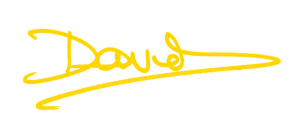The following blog post is taken from the transcript of a communications workshop I ran recently with a finance client. I hope you find some of the tips useful.
The Primary Tool of Communication
In your business, your relationships with people is so important. What do you use to communicate with? What am I using now? My voice!
Think of the features a human voice has when you’re talking, such as tone, inflexion, volume and speed.
When you’re nervous, do you go loud or soft? Sometimes you might eat your words because it’s like you don’t want to be heard. Do you go fast, or do you go slow? Most people just get on with it, but others go fast to make it finish quicker! What about pauses? Many or few, when you’re nervous? Usually, people don’t leave very many gaps, but a pause can be very powerful to hold people’s attention. So what happens to the person listening to you if you do all those things? Is it going to be a good experience, a negative experience? It could be awkward. The person could be making judgments about your level of confidence, or your level of competency.
Your Physical Tools
And then there’s body language. If you’re sitting upright and comfortably in a chair in a meeting, how might that look? It could look like, “I’m the one in charge here”. And you may actually feel confident, but your body language is very, very powerful. Your posture will say things that you may not realise you’re saying.
There are gestures. How expressive are you with your hands? A personal standing ramrod-straight with their arms by their side might have an air of military-like authority, but they’re unlikely to convey enthusiasm. Eye contact is obvious, but have you thought about lack of eye-contact? If in a group meeting and you speak to just one personal and miss some people – or worse, miss one person – how will that feel for them? Or, if someone asks you a question and you stare into space instead of maintaining eye contact (as people often do when they’re accessing memory) it might look like you’re pulling an answer out of the air!
Comportment
How you dress is hugely important. You might not want to be overly smart, but you certainly don’t want to be under. My default position is always smart. I feel I need to be at least as, if not a little bit smarter than delegates, because of my responsibility.
Movement is also important. I’m often described as someone who dances around a room! To an audience that shows my passion, energy, and excitement (okay, I’m an actor, I can’t help it!). How you use space is important. If you’re in a very small space it can be tricky, and don’t just jump up and down on the spot! Try to use the space to engage with people in different places, and then it becomes more purposeful.
Well there’s a good start. Next time I’ll be sharing some language tips (and lack of language…).

David Solomon
Managing Director, Sun and Moon Training
@SunMoonDavid
Photo copyright: milkos / 123RF Stock Photo
